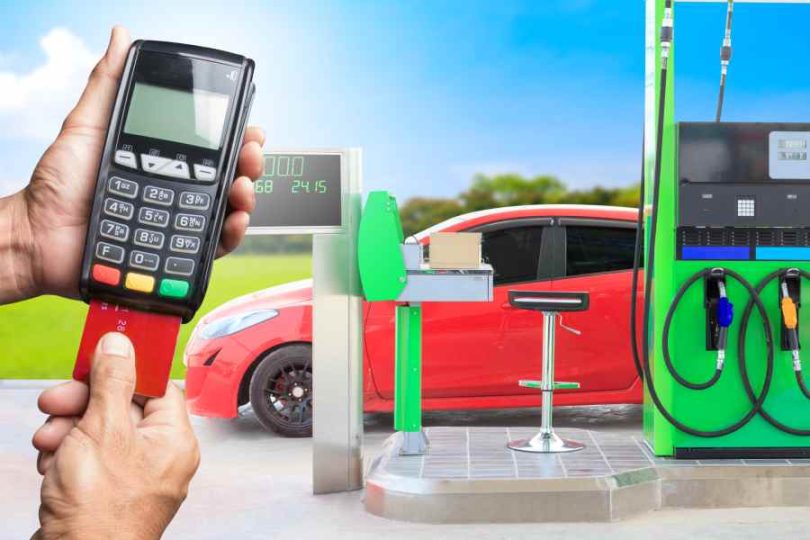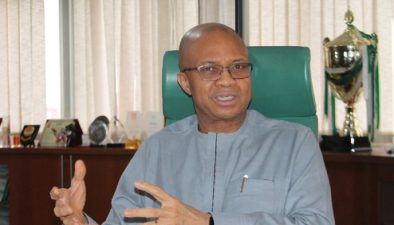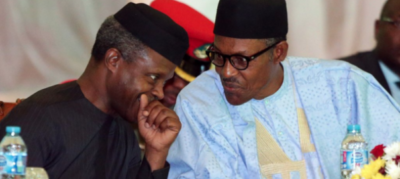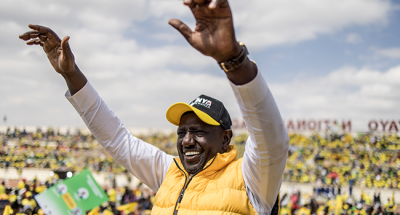*Revelations as FG moves against fuel marketers
*Orders them to accept POS, mobile transfers or face sanctions
*”States’ Govs, security agencies must punish other marketers”
By KEMI KASUMU
Oil marketers, in the habit rejecting payments by Point of Sales (POS) and mobile transfers from customers across Nigeria, have been warned to stop the practices capable of derailing aims and objectives of the cashless policy or face punishment.
This warning was issued Friday via an official statement by the Nigerian Midstream and Downstream Petroleum Regulatory Authority (NMDPRA), through which the Federal Government warned that under no circumstances should petrol retailers insist on cash payments as they leverage the cash crunch to prey on consumers.
The DEFENDER reports that, apart from oil marketers setting at the retail outlets, there have been other Nigerians in trade, who have been rejecting POS and mobile transfers due to what our investigations revealed to be for selfish gains of officials involved in the unpatriotic anti-people act.
According to our investigations, people involved in the act would insist on cash payments so that, in the wake of new naira notes scarcity, they take the cash to POS operators, who onwardly pay customers their saved money from their bank accounts but at selling rate rather than service charge that is reasonably taken.
Under the current sharp practices, the POS, many of whom have shutdown from business, while paying customer to withdrawing N10,000 from his account take N1,000 and hand him N9,000.
“Old naira notes not even new notes so one could – albeit ignorantly – say it is because of scarcity of new notes. We also buy old naira notes N1,000 to collect N10,000 meaning we withdraw N10,000 and share it with the POS operator on one-tenth basis. What that means is that, if I want to withdraw N30,000 I pay N3,000.
“Yet, I do not put all the blames on government because what they brought to us of cashless policy would even reduce our proneness to falling victims of armed robbery either at home or at ATM machine point. But I blame my fellow masses, who are also public and private officials that sabotage the good policy implementation,” an angry public told The DEFENDER.
However, the NMDPRA, while frowning at the ugly development at the filling stations happening by the oil marketers, said it was causing untold hardship for Nigerians at a time when all hands ought to be on deck to assist the Federal Government transition into to the new Naira.
“All retail outlets are directed to ensure the free use of PoS and bank transfers for sale of petroleum products to alleviate the suffering of customers at this critical time. “The Authority and security agencies will be at retail outlets to ensure compliance with this directive and any filling station found violating this directive will be duly sanctioned”.
A media source has also corroborated our findings that many filling stations in Abuja, like we found out in Lagos, have refused to accept electronic payments but insist on cash which they sell to POS operators at exorbitant prices.
According to another media source, some of the oil marketers gave reason, who tried to resist being blamed for insisting cash payments, justified their behaviour by saying they were also hit by the cash crunch, as this had affected their operations in diverse ways, denying them the ability to restock in some instances.
How cashless policy, which provides security for money in bank while reducing volumes or physical handling of cash but via electronic means, has negative effects in the trading activities of filling stations that restock in millions of naira remains a question begging for an answer.
The government has, however, spoken while some Nigerians have come up to caution the way fellow citizens quickly fall for a cheat like it has been experienced with the POS operators.
One Chikodi, who spoke to us at a filling station around Alagbado, said, “You can imagine the excuses being given by our fellow Nigerians to fall for the cheating by POS who sell N10,000 at N1,000. Who loses? You, the owner of the money of course! How do I mean?
“No matter what, the bank at highest would charge the POS N26 for making the withdrawal to you from your account. Call it N50. On a normal day, the POS operator would charge N100 per between zero naira to N5,000 and N200 from above N5,000 to N10,000 meaning on every N5,000 you pay N100 but now they take N100 from every N1,000 and when you take N1,000 in ten places that is N10,000 you pay N100 in ten places – N1,000.
“The POS operators, who we learned go their money from filling stations operators and other market people insisting on cash payments, at what time has cheating people become a must-do business in our beloved country? This is where government must act on behalf of the rest of us.
“Nna, it is good now that the Federal Government has also seen beyond bankers who hoard new naira notes to the filling stations owners, who also take part in frustrating the beautiful cashless policy by rejecting POS and mobile money transfers. The states across Nigeria are governed by some people, the governors. Why are they not taking charge against all of these anti-people behaviours of people in their respective states? Must President Buhari come down to Lagos to stop ordinary mischief makers in the street? Must CBN Governor Godwin Emefiele enter all banks to see hoarders of new naira notes?
“Apart from Governor of Borno State, Professor Babagana Zulum, who issued riot acts to banks to say any bank that fails to pay customers and it is discovered it hoards, its rights of occupancy will be revoked, which other state governor in Nigeria has made such pro-national interest effort at this critical human created ” Chikodi said.
Before the cash scarcity began, in Abuja, withdrawal of every N10,000 in Abuja was as low as N100 while in Sokoto City, withdrawal of as much as N50,000 was charged N100 by POS operators, The DEFENDER’s investigations revealed.




